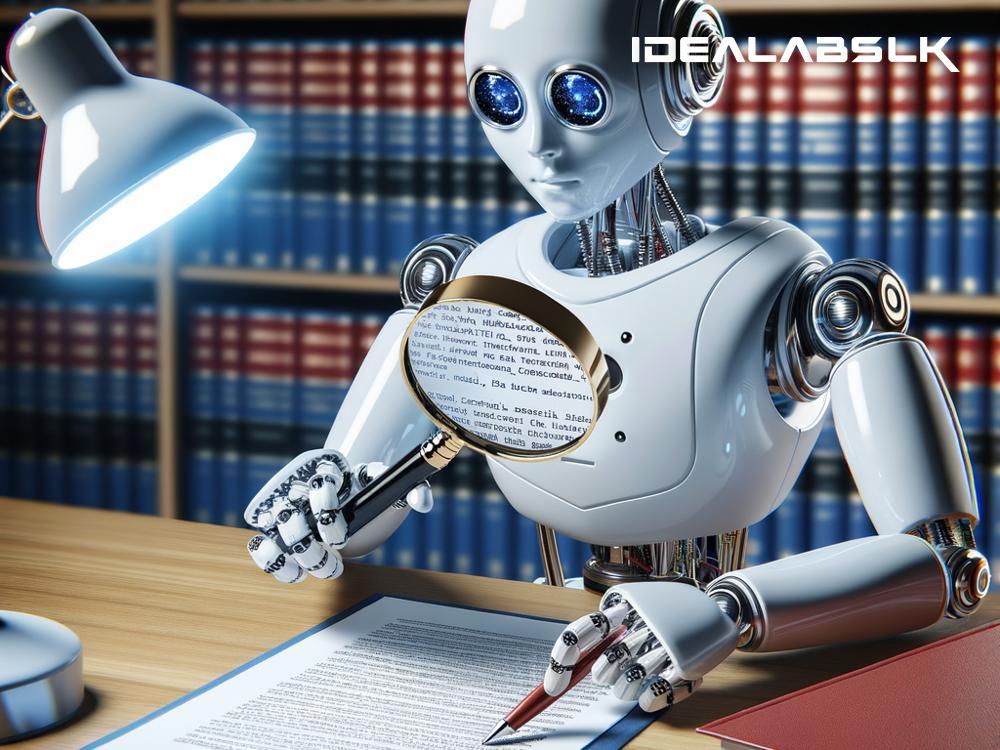Title: AI-Powered Contract Review: Navigating the Legal and Ethical Maze
In recent years, the legal world has been buzzing about a new player on the field: AI-powered contract review tools. This revolutionary technology promises to streamline the painstaking process of reviewing contracts, offering a blend of speed, accuracy, and efficiency that humans alone can't match. But as with any new tool, it brings with it a raft of legal and ethical considerations that need to be carefully navigated. Let’s break down what this technology is, and explore its legal and ethical implications in simple terms.
Understanding AI-Powered Contract Review
At its core, AI-powered contract review uses artificial intelligence to read, understand, and analyze contracts. Think of it like a supercharged speed-reader that not only goes through the text faster than a human but also understands its meaning, flags potential issues, and even suggests revisions. It’s no wonder law firms and corporations are turning to this technology to save time and reduce the risk of human error.
Legal Implications
-
Accuracy and Liability: One of the biggest questions is how accurate these AI tools are. What happens if the AI misses something important, leading to a bad deal or legal trouble down the line? Who is responsible – the AI developers, the lawyers who relied on the technology, or the company that owns the contract? As the law stands, this is still a gray area, and professionals are treading carefully.
-
Data Security: Contracts often contain sensitive business information. So, when an AI system processes these documents, there’s a significant concern about data privacy and security. Any breach could lead to legal actions and severe reputational damage. Therefore, ensuring that these AI tools have ironclad security measures is crucial.
-
Job Displacement: There’s also the legal concern surrounding job displacement. As AI takes over more of the routine tasks of junior lawyers and paralegals, what happens to these jobs? This topic transcends the legal field, touching on broader economic and societal issues.
Ethical Implications
-
Bias and Fairness: AI systems learn from vast amounts of data, including previous contracts. If this data contains biases (which, let’s face it, much of human history does), the AI could perpetuate or even exacerbate these biases. Ensuring that these tools are as objective and unbiased as possible is a moral imperative for developers and users alike.
-
Transparency: Another ethical issue is transparency. Can the AI explain why it made a certain decision or flagged a particular clause? Understanding the “why” behind AI decisions is crucial for trust and accountability, but many AI systems are notoriously opaque, making it hard to scrutinize their decisions.
-
Access and Fairness: Lastly, there’s the question of who gets to use these powerful tools. If only the biggest firms with the most resources can afford the best AI, could this widen the gap between the legal haves and have-nots? Ensuring fair access to technology is an ethical concern that the legal profession needs to address.
Navigating the Maze
So, how do we navigate these legal and ethical dilemmas? Here are a few steps:
-
Regulation and Standards: Clear regulations and standards for AI in legal practice can help address accuracy, liability, and security issues. These guidelines can also encourage developers to focus on eliminating bias and increasing transparency.
-
Education and Training: For legal professionals, understanding how AI tools work, their limitations, and how to interpret their outputs is crucial. This can help mitigate risks and ensure more ethical use of the technology.
-
Ethical AI Development: Developers of AI technology must prioritize ethical considerations from the ground up, focusing on eliminating bias and ensuring transparency and fairness in how contracts are reviewed and analyzed.
-
Broad Collaboration: Solving these complex issues requires collaboration across the legal profession, tech industry, regulators, and even society. Together, stakeholders can work towards a future where AI enhances the legal field without compromising on ethics or justice.
In conclusion, AI-powered contract review is not just a technological innovation; it's a catalyst for broader discussions about the future of the legal profession, the role of machine intelligence in decision-making, and the ethical implications of AI. While the potential benefits are vast, navigating the legal and ethical maze requires careful thought, ongoing dialogue, and a commitment to fairness and equity. As we move forward, it's clear that the intersection of AI and law will continue to be a fascinating, challenging, and ultimately rewarding journey.

